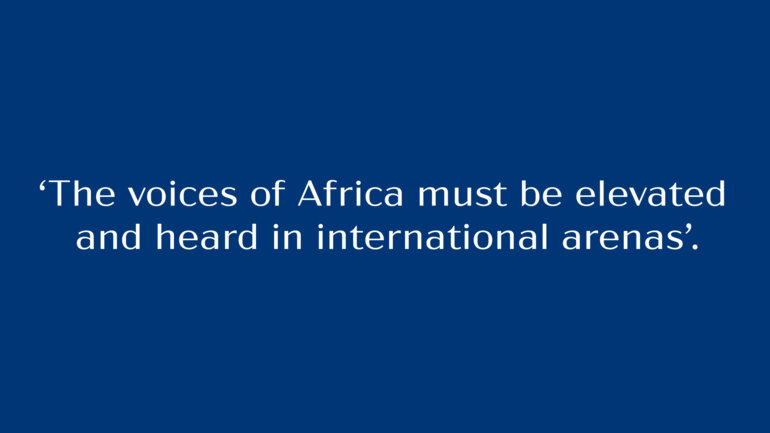

An International Monetary Fund (IMF) mission led by Marshall Mills visited Lomé during April 1–15, 2010 to conduct discussions for the fourth review of Togo’s program under the Extended Credit Facility (ECF).
The mission met with President Faure Gnassingbé, Prime Minister Gilbert Houngbo, Minister of Economy and Finance, Adji Ayassor, Minister of Cooperation, Development and Regional Planning, Gilbert Bawara, other members of the government, and senior officials.
It also held fruitful discussions with parliamentarians, representatives of civil society, labor unions, donors, the private sector, and the press.
At the end of the mission, Mr. Mills issued the following statement: “The global recession has negatively affected Togo’s economy in 2009, slowing its recovery from the country’s prolonged domestic crisis.
Despite the government’s countercyclical fiscal policy, real GDP growth reached only 3.1 percent in 2009, below the estimated potential of 4 percent. Food production, in particular, contributed to growth, thanks to favorable weather and government subsidies for fertilizer. Inflation fell to an average of 2 percent in 2009, compared to 9 percent in 2008, reflecting lower food and fuel prices.
The overall fiscal deficit widened somewhat to reach 3 percent, primarily due to increased public investment to mitigate the impact of both the global recession and years of under-investment. The external current account deficit widened to 7 percent of GDP, as the global recession dampened export growth and depressed workers’ remittances, while import demand was supported by public works. Monetary developments were favorable in a context of continued bank restructuring, with strong growth in deposits and credit to the economy. “In 2010, the lingering effects of the global recession will continue to keep economic growth low, at an estimated 3.3 percent.
In this context, the mission supported the government’s intention to maintain a countercyclical fiscal stance in 2010, provided affordable financing is available. Both inflation and the external current account deficit are projected to remain stable. “While the authorities’ fiscal stance in 2010 is justified by the macroeconomic situation, its successful implementation requires strong revenue collection efforts, vigilance in respecting spending limits, and additional financial assistance from its external partners.
To strengthen medium-term debt sustainability, the authorities should pursue a progressive fiscal consolidation starting in 2011, as the global economy continues to recover. “In a difficult global economic context, implementation of the government’s economic and financial program supported by the ECF has been broadly satisfactory, although there were some modest deviations from key fiscal targets. Structural reforms advanced broadly in line with program objectives, albeit with delays in some cases.
In addition to good progress in clearing a large stock of domestic arrears, the government is preparing to privatize public banks by the end of the year and has already adopted a strategy for the reform of the phosphate sector.
The mission welcomed plans to establish a “one stop shop” (guichet unique) to facilitate trade and customs procedures. Reforms in electricity and telecommunications sectors remain important for growth.
The mission urged the authorities to continue the implementation of their structural reform agenda. “The mission reached preliminary understandings on an economic and financial program for the remainder of 2010 and for 2011.
On the basis of these understandings, the fourth review of program performance under the ECF and a request from the authorities for higher access to IMF resources are expected to be considered by the Executive Board of the IMF in June 2010.
“The mission wishes to thank the authorities for their warm hospitality and the high quality of the technical discussions.”





